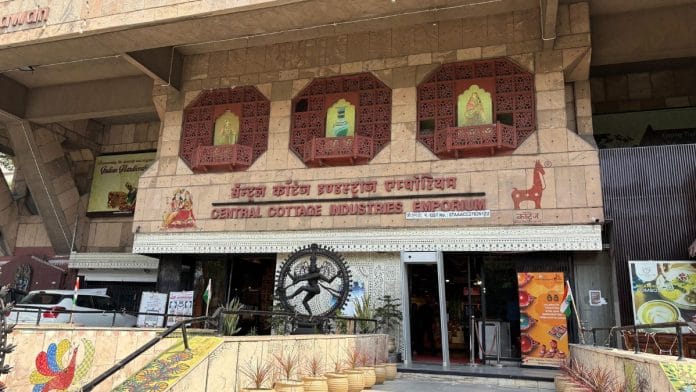New Delhi: Every morning since July, 59-year-old Shyam Narayan pins a small slip of paper to his shirt that says “We are under protest” and comes to Delhi’s Central Cottage Industries Emporium. He greets daily customers with a smile, even though he hasn’t been paid for four months. Then he gets to work.
Narayan and his colleagues survive on broken FDs and loans. Yet they return to work each day, driven by loyalty to a once-proud symbol of India’s craft legacy, now crumbling under neglect.
The lights are still on. But the air conditioning is off. Behind the folded handloom saris and fixed smiles, the soul of the Cottage Emporium is flickering.
Sales that once ran into crores until 2020 now barely touch a few lakhs, a decline that employees blame on years of mismanagement. Over 100 employees, including sales staff, managers, and support personnel, face months of unpaid wages. Artisans have stopped supplying their products, and even basic utilities like air conditioning have been shut off, reportedly over dues exceeding Rs 202 crore.
Still, the employees hold on, hoping that the emporium can rise again.
“When I joined in 1989, it was like a family. There was joy in working here. Customers came from all over, and we used to receive incentives. We had around 200 to 300 artisans back then. Now, there are hardly 20 to 30,” said Shyam Narayan.
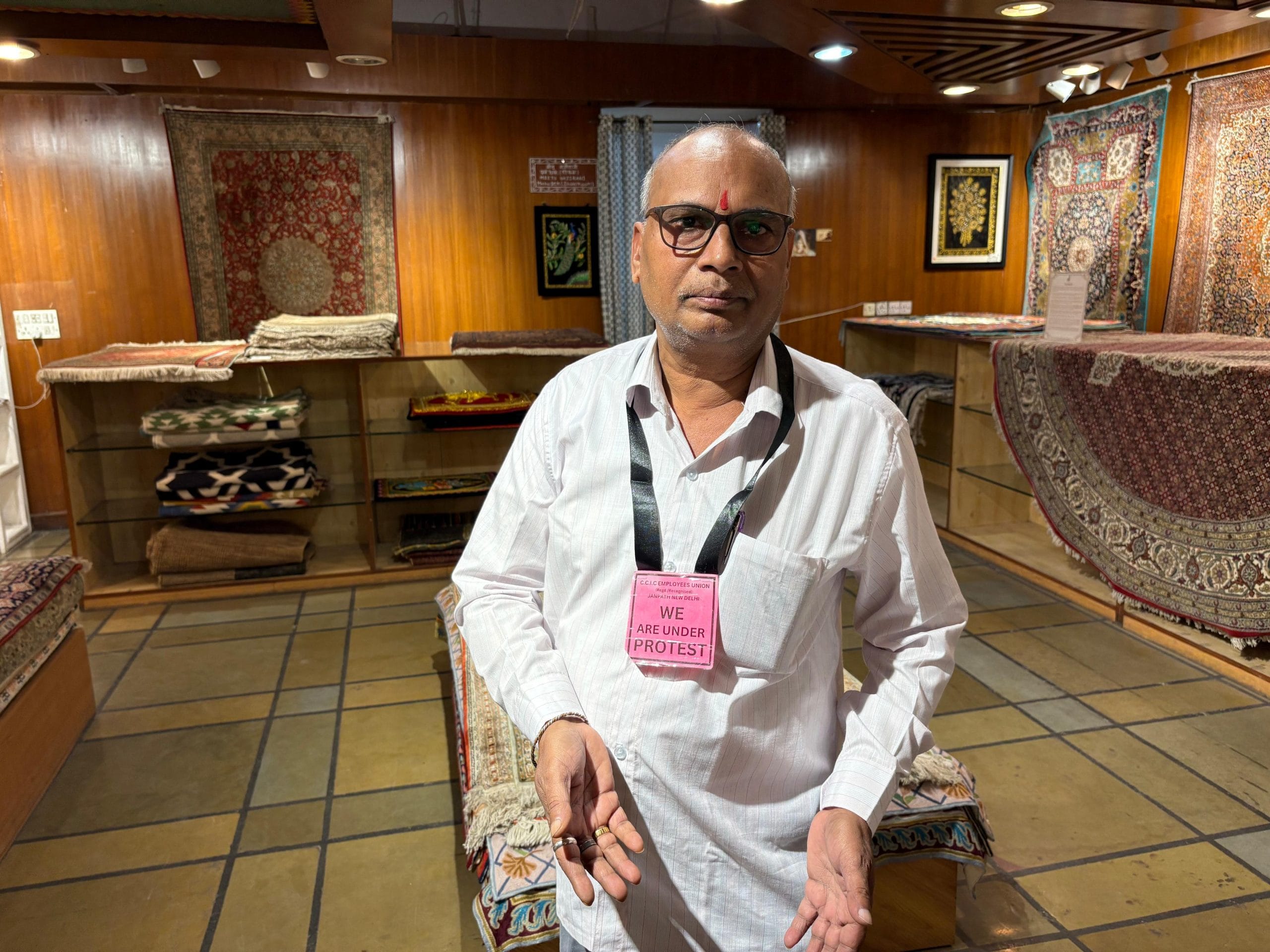
Long before malls arrived, the Cottage Emporium in the heart of New Delhi offered a curated, dignified showcase of India’s finest craft. From Varanasi’s handwoven silks to West Bengal’s terracotta to Saharanpur’s woodwork to Kashmiri carpets, it was India’s first true concept of a cultural mall, where tradition and commerce met. It was one-stop shopping for all the things that Indian civilisation put on its postcards and calendars.
For national and state award-winning artisans, it was a cherished stage where talent was afforded dignity, fair wages, and recognition. Over the decades, world leaders have been drawn to the charm of Cottage Emporium, marvelling at the fusion of tradition and innovation in Indian designs. Sonia Gandhi was known to handpick saris from here—many that Priyanka Gandhi Vadra continues to wear even today. In 1962, Jacqueline Kennedy, escorted by Indira Gandhi, attended a mesmerising fashion parade that showcased the elegance and wonders of Indian design.
The emporium has hosted a roster of global dignitaries: US President Bill Clinton, Secretary of State John Kerry, and Senator JD Vance and his family have all experienced its charm. And each left with a deeper appreciation of India’s cultural soul.
People here took home loans. Now, banks are pasting notices on their doors. They planned their lives around a stable income. EMIs are due, but there’s no salary to cover them. People aren’t dying from debt… yet. But everything else is happening.
—Ajay Singh, support manager, Central Cottage Industries Emporium
While the government boasts of its support to Indian artisans through schemes, speeches, and slogans such as ‘Make in India’ and ‘Atmanirbhar Bharat’, the emporium’s empty shelves tell a starkly different story. Campaigns such as the push for Swadeshi promise to revive demand for handlooms and handmade goods. Yet, behind this glossy narrative lies a grim truth. Despite being a public sector undertaking (PSU) under the Ministry of Textiles, the emporium has struggled to translate these promises into actual support.
Today, the emporium is under a gloomy storm of bureaucratic neglect, unpaid dues, internal scandals, and a staggering absence of political will.
Inside the Cottage Emporium
Ajay Singh, support manager at the iconic Central Cottage Industries Emporium, gently opened up the boxes filled with newly arrived silverware. His eyes paused on the intricate peacock design, with fine filigree work. Each piece was bright, beautiful, and handcrafted.
“These are exquisite,” he murmured, showing them to his colleagues. In the past, such products wouldn’t stay in the store for long. They’d be snapped up the moment they arrived, despite their high price tags.
Behind Singh, empty shelves are finally starting to get filled, if only with a handful of pieces. The artisan behind these works, A Ashok, has just resumed supplying after a two-year break.
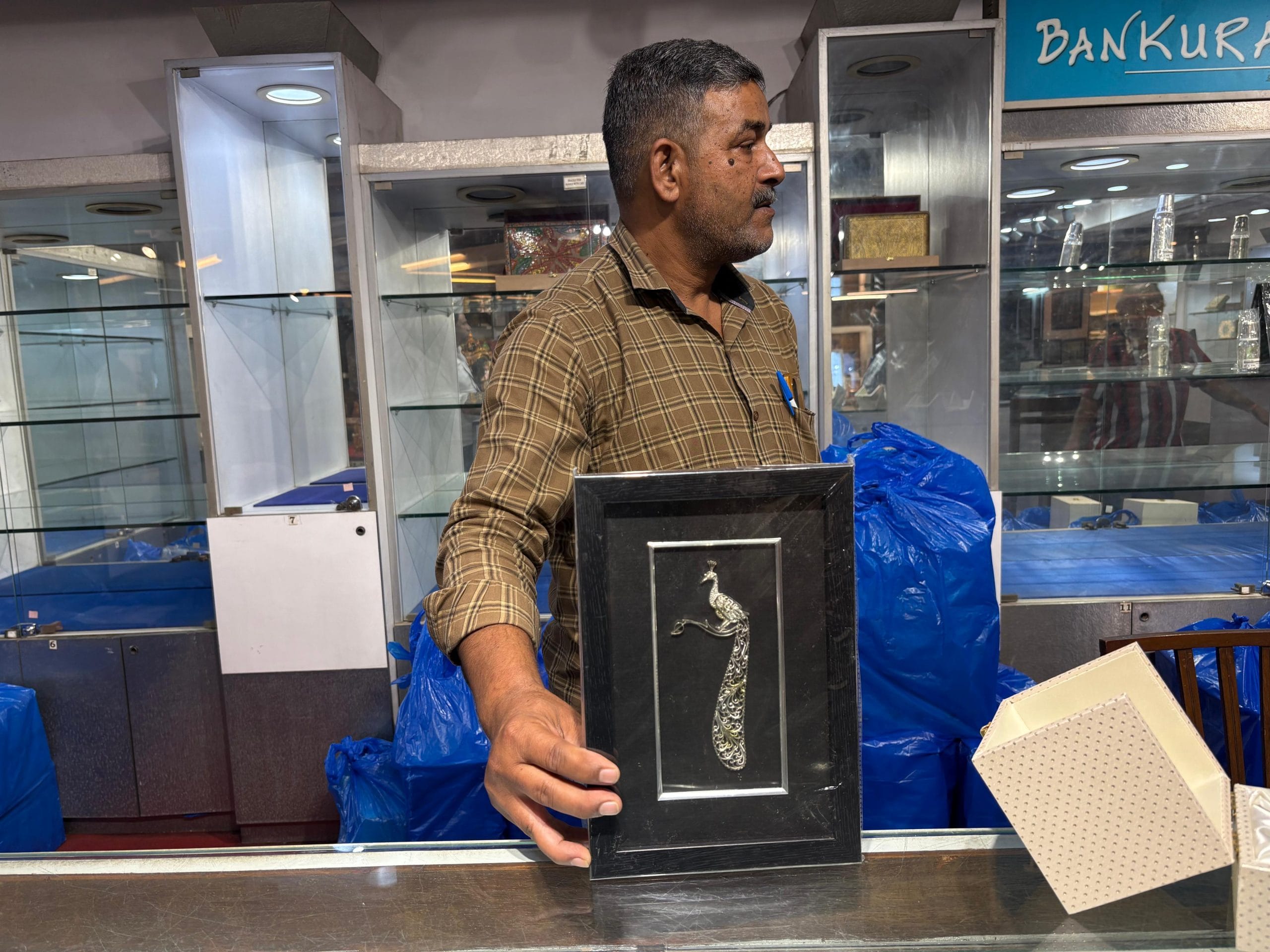
“People here took home loans. Now, banks are pasting notices on their doors. They planned their lives around a stable income. EMIs are due, but there’s no salary to cover them. People aren’t dying from debt… yet. But everything else is happening,” Singh said.
He added that the Cottage Emporium has a tie-up with only one hospital, and even that refuses to admit the employees sometimes. They have a medical policy on paper, but it’s ignored.
The crisis didn’t erupt overnight. Vasudevnan, a senior employee who has been working at the emporium for over 30 years, said the decay began quietly, during the Covid-19 pandemic.
“Since Covid hit, our salaries have been irregular. That’s when our salaries started arriving late—15 to 20 days behind schedule,” Singh said.
After Covid, everything collapsed.
Daily sales have plummeted from Rs 15-20 lakh to a mere Rs 3-4 lakh per month, representing a revenue drop of over 95 per cent. The Diwali season is approaching with little expectation of recovery due to ongoing inventory shortages.
“In the past year alone, payments have been pending on and off for 12 months. We had to dip into our provident fund just to feed our families,” Singh added.
He and his colleagues remember the post-pandemic period as a time of endless waiting, broken promises, and near-complete silence from leadership.
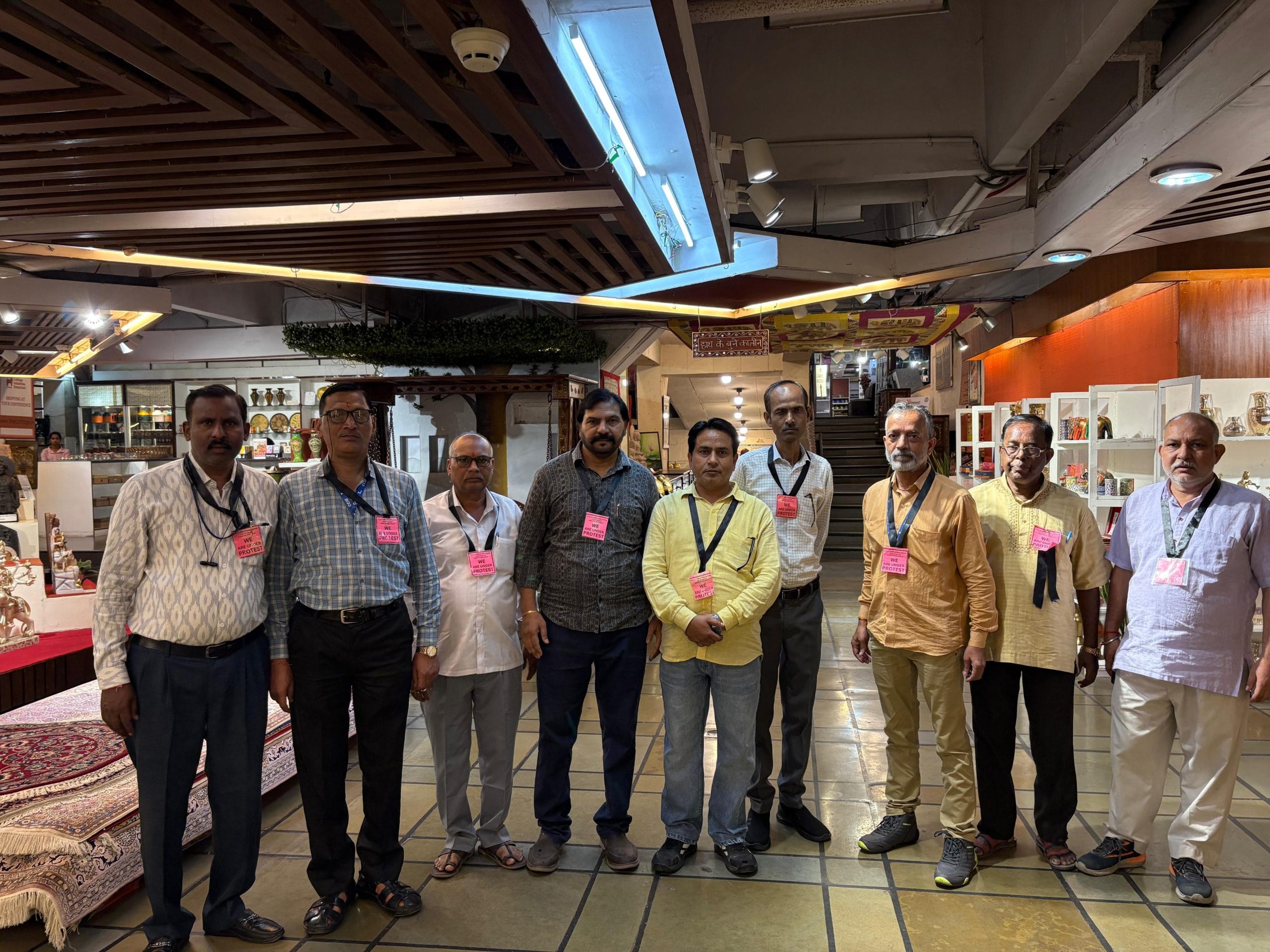
Between 2020 and 2023, employees were locked in constant negotiations just to receive their wages. Payments were often delayed by two to three months, forcing staff to adapt and endure.
“But 2024 brought a more brutal reckoning. Even the smallest assurances, like annual increments or chances at promotion, were withdrawn without explanation. Morale evaporated,” said Vasudevnan.
Today, only a handful of artisans and suppliers continue to support the Cottage Emporium, and they do so on sheer goodwill and as a nod to nostalgia.
“A proposal has been made for a financial aid package in the range of Rs 80-85 crore. The organisation is in the red, and it needs financial backing to keep going,” a government official said on the condition of anonymity.
—government official who wished to remain anonymous
But goodwill doesn’t pay bills.
For over 15 years, A Ashok from Karimnagar, Telangana, has been supplying handcrafted silver items—each made in 2.5-grade pure silver—to the Central Cottage Industries Emporium. For a decade, things went smoothly. But everything changed after Covid-19. Payments stalled, and for nearly three years, he stopped supplying due to non-payment by the emporium.
“But now, the weight is unbearable. The emporium owes me nearly Rs 1.3 crore. Silver prices have soared, but I’m still supplying at old rates, bearing the losses just to keep the work going. I can’t stop because 150 families in Karimnagar depend on this craft for their livelihood. I have to continue for them,” said Ashok.
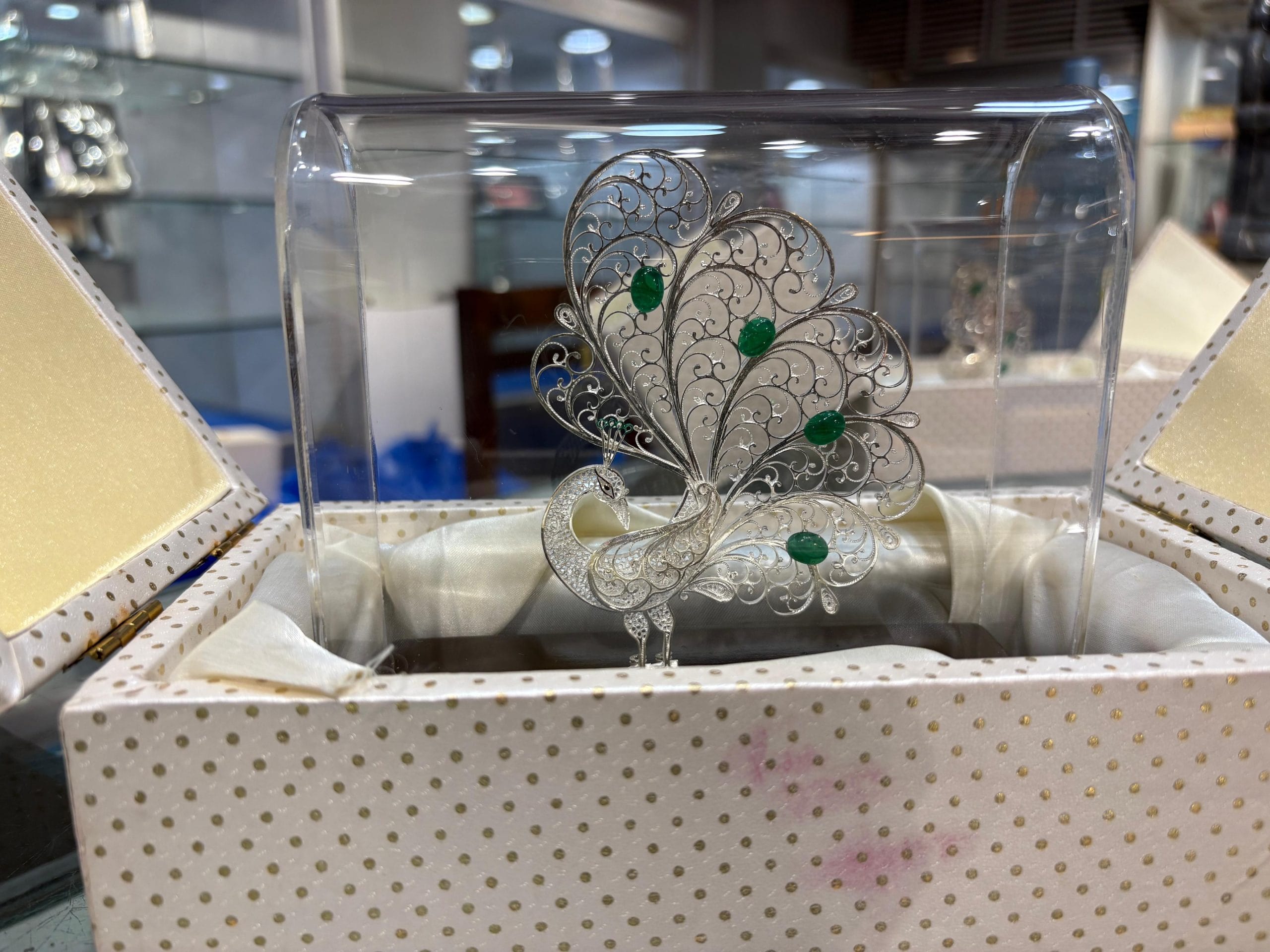
Employees, too, find themselves unheard. They’ve knocked on every possible door, only to be met with silence.
Anand Singh Negi, union president and an employee for 35 years, is now fighting for workers’ rights as well as for the very survival of the emporium.
“Letters have been written, formal protests submitted, and appeals made to the Ministry of Textiles, the Prime Minister’s Office, Nirmala Sitharaman, and the Cottage Emporium MD. No reply. No resolution,” Negi said.
He added that they got paid every eight months at one point. Right now, employees are behind by four months. Security guards haven’t seen a paycheck in three months.
And the financial rot has triggered an operational collapse.
Daily sales have plummeted from Rs 15-20 lakh to a mere Rs 3-4 lakh per month, representing a revenue drop of over 95 per cent. Festive seasons, historically a peak period generating crores in revenue, now see minimal footfall and near-empty showrooms. For example, the Diwali season is approaching with little expectation of recovery due to ongoing inventory shortages.
Negi outlined a worsening financial crisis: Rs 20 crore owed in electricity bills, suspended hospital partnerships, unreimbursed medical claims, and unpaid allowances and pensions. Even retired staff are waiting for their leave encashments — some since April 2022 — as well as gratuity payments pending for two years.
Also read: Safety is the new slogan for India’s E-scooters. Green branding is old
Nehru’s dream and its reckoning
Founded in 1948, the Cottage Emporium emerged from the vision of social reformer Kamaladevi Chattopadhyay. Working alongside women like Fori Nehru, Kitty Shiva Rao, and Prem Bery, she transformed a small refugee rehabilitation initiative into a national movement for handloom and handicraft revival.
By the early 1950s, the Janpath showroom had become the beating heart of India’s postcolonial optimism. Jawaharlal Nehru called it “a modern monument of Delhi like the Kutub of the old era.”
Queen Elizabeth II and Prince Philip visited in 1961. Margaret Thatcher, Queen Farah of Iran, and Sehba Musharraf would follow in later decades.
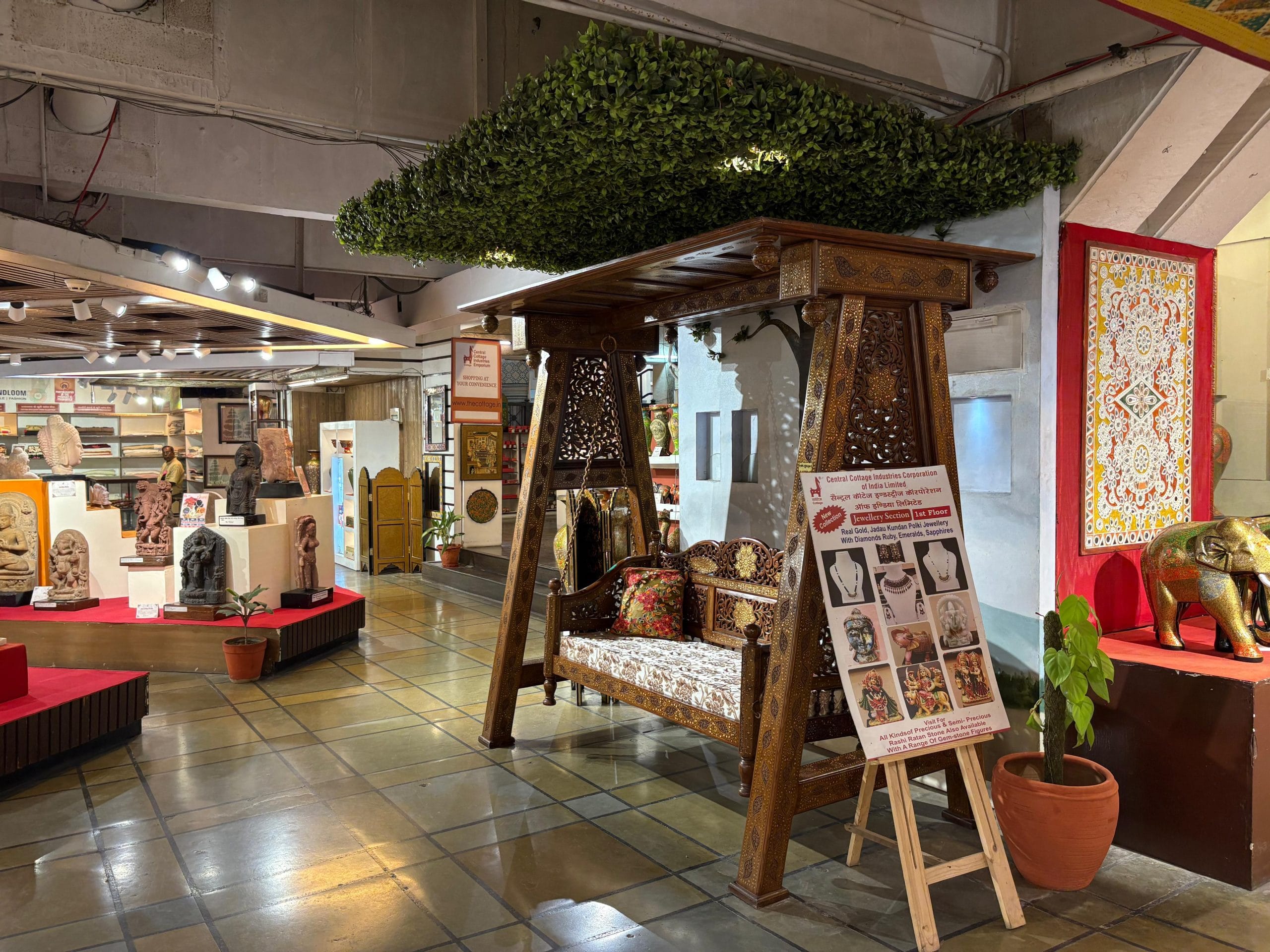
‘Shutting down not an option’
Despite its rich history and cultural significance, the PSU is now struggling to stay afloat. However, authorities insist that they are doing everything possible to revive it.
According to senior government officials, the ongoing financial distress has been building over several years. Repeated delays in salary disbursements and operational breakdowns are not sudden developments, but rather the outcome of prolonged mismanagement and consistent non-compliance by those previously in charge.
Despite multiple warnings over time, the issues remained unresolved, eventually prompting higher authorities to step in.
“A proposal has been made for a financial aid package in the range of Rs 80-85 crore. The organisation is in the red, and it needs financial backing to keep going,” a government official said on the condition of anonymity.
There is anxiety among employees about the institution’s future, particularly concerns about a potential shutdown. However, officials have ruled out any plans to shut it down.
“Senior leadership has assured us that winding it up is not an option. The intent is to revive and stabilise the organisation. The first tranche of funds will help plug immediate gaps, and more steps will follow. Yes, the situation is serious, but we’ve been told clearly that the institution will survive,” the official added.
Also read: Labourers, masons, fitters going online for jobs. A LinkedIn for construction workers
Unravelling of the Cottage Emporium
For many employees at the Cottage Emporium, the connection is generational.
“Most of our fathers worked here,” said Vasudevnan. “And after they retired, we followed in their footsteps.”
In the financial year 2023-24, the emporium experienced a brief but notable high under senior general manager DK Mishra. Negi noted that with his sharp business instincts, Mishra managed to skyrocket annual sales to Rs 1.5 crore—even as the organisation grappled with chronic payment delays.
“Mishra understood sales. He understood business. And he knew how to grow it,” Negi recalled.
However, his tenure ended abruptly. A sexual harassment complaint led to his removal by then-managing director Manoj Lal. An internal complaints committee (ICC) found him guilty, after which Mishra was demoted to a lower position and transferred from the Jawahar Vyapar Bhawan branch. After his exit, the sales momentum collapsed, and so did internal morale.
What followed was a period marked by worsening mismanagement and the quiet seep of corruption. Two employees, Pradeep Rawat and Harinder Singh Bisht, were accused of running a parallel online business. They allegedly used official Cottage Emporium products to fulfil private orders.
“They created ‘CraftZone’ using our samples, our barcodes, everything,” said Vasudevnan. “They knew the suppliers, rerouted the orders, and paid in cash under the table. A lot of business was diverted like that.”
When the scam finally came to light, it was escalated to the Central Bureau of Investigation (CBI) due to the emporium’s government ownership.
“A complaint was filed, and all the files and expenses were handed over to the CBI. The investigation is still ongoing. Despite the gravity of the charges, the accused have not yet been formally dismissed, pending the outcome of the inquiry,” said Vasudevnan.
The case is still under investigation by the CBI.
Many trace the real decline to the leadership of former MD Manoj Lal.
“Before he came, things were better. But once he took charge, everything started to fall apart,” Vasudevnan said.
Lal wanted to expand sales by reaching out to embassies and major hotels, especially during the visit of foreign delegations, hoping to attract ambassadors and other high-profile customers.
“That’s when the problems really began,” said Vasudevnan. “The Cottage Emporium is not for going out. It’s a brand in itself. Customers come on their own. And we did go out to sell, but there was no sales.”
Employee frustration is at a boiling point, fuelled by allegations of nepotism and favouritism. “They’re putting inexperienced officers in top positions, while sidelining those of us who’ve served for decades,” one employee said.
Recruitment officially follows set channels: direct hiring through public ads or employment exchanges. However, in internal promotions based on seniority-cum-merit and deputations from allied textile bodies, the process often lacks transparency, workers claimed.
Today, the Cottage Emporium is buried under Rs 202 crore in unpaid dues. Cost-cutting has become severe.
“How do I even begin to explain the pain we’re in? This Cottage Emporium has given me everything,” said Shyam Narayan. “There was a time when this place was full of life and energy. All I can do now is hope that things get better soon.”
(Edited by Prasanna Bachchhav)



